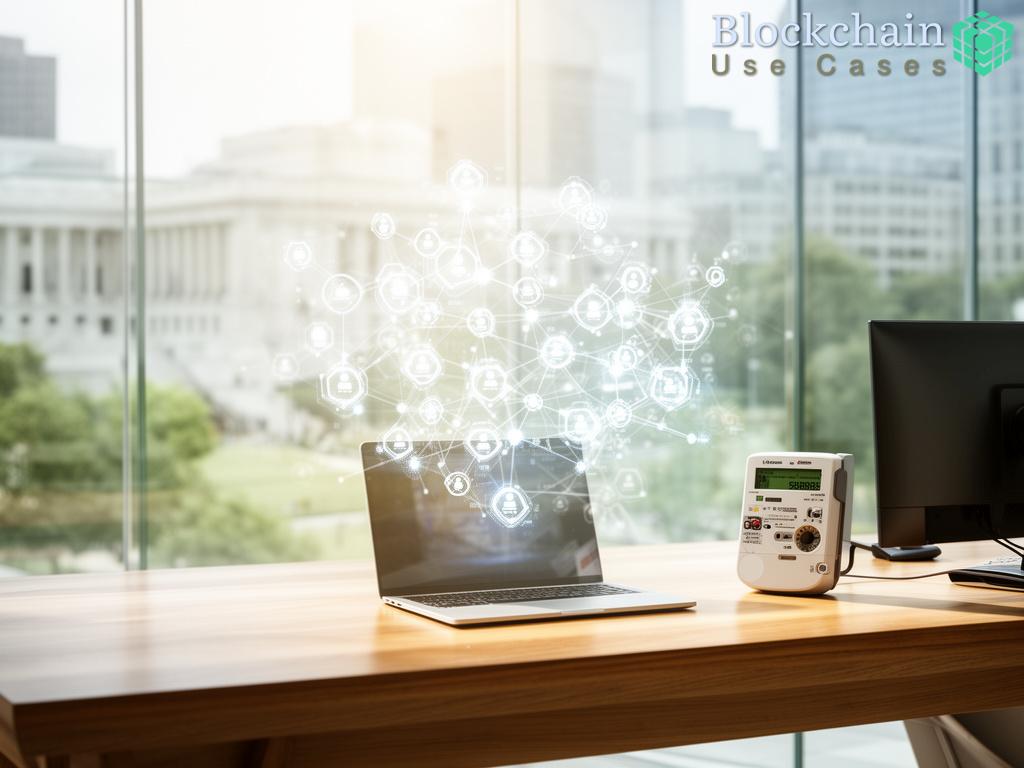Overview of Smart Contracts in Tidal Energy
Tidal energy, an underutilized renewable resource, presents a significant opportunity for sustainable energy generation. The innovative integration of smart contracts into this sector is poised to revolutionize how we allocate and trade tidal energy resources. By automating processes, enhancing transparency, and reducing transaction costs, smart contracts can facilitate a more efficient and trustworthy marketplace for tidal energy.
Smart contracts, powered by blockchain technology, offer numerous advantages in the management and trading of tidal energy. These benefits not only streamline operations but also instill confidence among stakeholders.
- Automation: Smart contracts automate the execution of agreements when predefined conditions are met, minimizing the need for intermediaries.
- Transparency: All transactions are recorded on a public ledger, ensuring all parties have access to the same information.
- Security: The decentralized nature of blockchain technology enhances the security of transactions against fraud and manipulation.
- Cost Efficiency: By reducing administrative overheads and streamlining processes, smart contracts can significantly lower transaction costs.
While the potential of smart contracts in tidal energy is immense, certain challenges must be addressed to maximize their effectiveness. Issues such as regulatory compliance, interoperability with existing systems, and the need for robust technological infrastructure are critical considerations. As the technology matures and regulatory frameworks evolve, the future of tidal energy trading through smart contracts looks promising.
Mechanisms for Resource Allocation in Tidal Energy

The proliferation of smart contracts in the tidal energy sector is not merely a technological advancement; it marks a significant shift in resource allocation practices. The mechanisms that govern how tidal energy is allocated and traded are evolving, driven by the need for efficiency, sustainability, and transparency. By harnessing the capabilities of smart contracts, stakeholders can engage in a streamlined process that ensures optimal resource usage and equitable distribution of energy generated from tidal sources.
Decentralized allocation models leverage smart contracts to create a peer-to-peer marketplace, allowing producers and consumers of tidal energy to interact directly. This innovative approach minimizes reliance on central authorities or intermediaries, thereby reducing latency and costs associated with traditional energy markets. Through automated matching of supply and demand, smart contracts facilitate real-time transactions based on predefined criteria, ensuring that energy is directed to where it is most needed.
Another compelling feature of smart contracts in resource allocation is the implementation of dynamic pricing mechanisms. These algorithms adjust prices based on current demand and supply conditions, providing a fair market value for tidal energy. This adaptability encourages efficient utilization of resources, promotes competitive pricing, and ultimately leads to better consumer choices. The dynamic nature of these contracts means that they can respond to fluctuations in production due to tidal patterns, thus optimizing resource allocation consistently.
To better understand the advantages offered by smart contracts, we can compare traditional resource allocation methods with those enabled by smart contracts. Below is a summary table highlighting key differences:
| Aspect | Traditional Methods | Smart Contracts |
|---|---|---|
| Intermediaries | Often required to facilitate transactions | Direct peer-to-peer transactions |
| Transaction Speed | Can be slow due to manual processes | Instant execution upon condition satisfaction |
| Transparency | Limited visibility into processes | Full transparency via public ledger |
| Cost Efficiency | Higher costs due to administrative fees | Lower costs with reduced overhead |
This comparison underscores the transformative potential of smart contracts in tidal energy resource allocation. As these mechanisms continue to evolve, they promise to enhance the efficiency, accessibility, and reliability of tidal energy trading platforms, paving the way for a more sustainable energy future.
Trading Frameworks Leveraging Smart Contracts
The integration of smart contracts into trading frameworks for tidal energy is creating a paradigm shift in how energy resources are exchanged and managed. These frameworks enable the automation of trading processes, enhancing operational efficiency while ensuring that transactions are executed with minimal delay. By utilizing blockchain technology, stakeholders can engage in a more secure and transparent trading environment, which is essential for fostering trust and collaboration among parties involved in the tidal energy market.
One of the most significant developments in the tidal energy sector is the emergence of smart contract-driven trading platforms. These platforms are designed to facilitate seamless transactions between producers and consumers of tidal energy. By embedding smart contracts within their frameworks, these platforms can automate various trading functions, such as energy bidding, contract execution, and payment processing, thereby reducing operational burdens.
Smart contract trading frameworks are characterized by several innovative features that distinguish them from traditional energy trading systems. Below is a summary of the core attributes:
- Real-Time Market Access: Stakeholders can access market data in real-time, allowing for informed decision-making and rapid response to market fluctuations.
- Automated Compliance: Smart contracts can be programmed to automatically adhere to regulatory requirements, ensuring that all transactions are compliant without additional manual oversight.
- Enhanced Liquidity: By facilitating peer-to-peer transactions, these frameworks increase market liquidity, making it easier for participants to buy and sell tidal energy as needed.
- Dispute Resolution Mechanisms: Built-in protocols can help resolve disputes swiftly, minimizing the impact of conflicts on trading activities.
The future of smart contract trading frameworks in tidal energy appears bright, with ongoing technological advancements and increasing interest from investors and regulators. As these frameworks continue to evolve, they will likely incorporate more sophisticated algorithms and machine learning capabilities, enabling even greater efficiency and adaptability. By fostering a more robust and dynamic trading environment, smart contracts will play a pivotal role in realizing the full potential of tidal energy as a sustainable resource.
Regulatory Considerations for Tidal Energy Trading
As the tidal energy sector embraces innovative technologies such as smart contracts, the regulatory landscape becomes increasingly complex. The integration of these digital contracts not only enhances efficiency and transparency but also necessitates a thorough understanding of existing regulations and the development of new frameworks. Addressing regulatory considerations is crucial for ensuring that the adoption of smart contracts aligns with legal requirements, promotes market stability, and safeguards all stakeholders involved in tidal energy trading.
The first step in implementing smart contracts in tidal energy trading is ensuring compliance with existing energy market regulations. Governments and regulatory bodies have established rules that govern energy production, distribution, and trading. These regulations are designed to protect consumers, ensure fair competition, and promote sustainable practices. Therefore, it is imperative for stakeholders to familiarize themselves with relevant regulations that may impact the use of smart contracts.
With the deployment of smart contracts, data privacy and security become paramount concerns. The decentralized nature of blockchain technology presents both opportunities and challenges with respect to data management. Regulatory frameworks must address how sensitive data is collected, stored, and shared among parties involved in tidal energy transactions. Establishing clear guidelines on data protection will help mitigate risks associated with data breaches and unauthorized access while fostering trust within the marketplace.
As the tidal energy sector evolves, so too will the regulatory frameworks that govern it. Stakeholders must remain informed about potential changes and emerging regulations that could impact the use of smart contracts. Proactive engagement with regulatory bodies can facilitate the development of policies that not only support innovation but also address the unique challenges posed by tidal energy trading. A collaborative approach between industry players and regulators will be essential to create a balanced environment that encourages growth while ensuring accountability.
Key Regulatory Considerations:
- Licensing Requirements: Understanding the necessary licenses for operating tidal energy installations and trading energy.
- Consumer Protection Laws: Ensuring compliance with laws designed to protect the rights of consumers in energy transactions.
- Environmental Regulations: Adhering to environmental standards that govern tidal energy production and its impact on marine ecosystems.
- Interoperability Standards: Developing frameworks that allow smart contracts to function seamlessly with existing energy trading systems.
In conclusion, addressing regulatory considerations is critical for the successful integration of smart contracts in tidal energy resource allocation and trading. By navigating the regulatory landscape with diligence and foresight, stakeholders can harness the full potential of tidal energy while ensuring compliance and fostering a secure trading environment.
Case Studies of Smart Contracts in Tidal Energy Markets
As the tidal energy sector continues to evolve, several pioneering case studies are emerging that highlight the transformative potential of smart contracts. By examining these real-world applications, we can gain insights into how these digital agreements are streamlining operations, enhancing transparency, and fostering sustainable energy practices within tidal energy markets. These case studies not only illustrate the practical benefits of smart contracts but also set the stage for future advancements in the industry.
Several innovative projects have successfully integrated smart contracts into their tidal energy systems, showcasing the versatility and efficiency of this technology. Here are some notable examples:
- Tidal Energy Resource Management Platform: A consortium of companies has developed a platform that utilizes smart contracts to manage energy production and distribution from tidal sources. By automating the allocation of resources and payments, this system ensures that energy is directed to consumers based on real-time demand, significantly reducing waste and inefficiencies.
- Peer-to-Peer Tidal Energy Trading: An experimental project in Europe has launched a peer-to-peer trading platform that leverages smart contracts to facilitate direct transactions between tidal energy producers and consumers. This decentralized approach allows participants to negotiate prices and finalize trades without the need for intermediaries, resulting in lower costs and increased market participation.
- Dynamic Pricing Models: A leading energy provider has implemented smart contracts to establish dynamic pricing models for tidal energy. By using algorithms that consider supply and demand fluctuations, the system automatically adjusts prices in real-time, promoting fair market practices and incentivizing renewable energy usage.
The successful implementation of smart contracts in these case studies provides valuable lessons for stakeholders in the tidal energy sector. Key takeaways include the importance of regulatory compliance, the need for robust technological infrastructure, and the potential for collaboration between various market participants. As these projects demonstrate, smart contracts are not merely a technological novelty; they represent a fundamental shift in how tidal energy is allocated and traded. Moving forward, continued investment in research and development will be crucial for unlocking the full potential of smart contracts in tidal energy markets.





